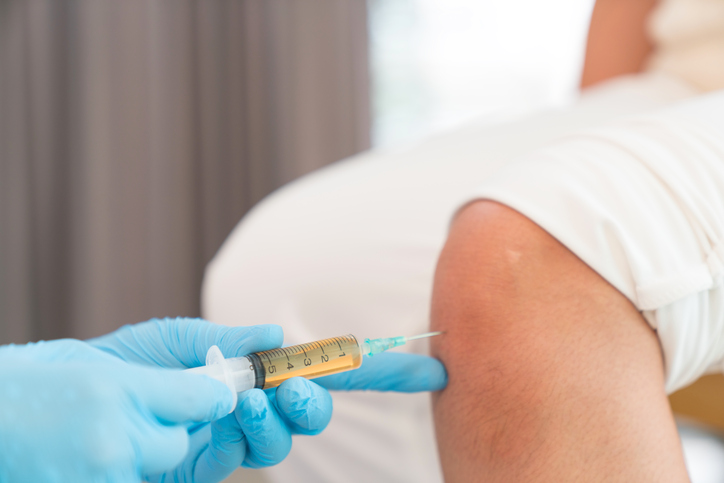

There is no clearer evidence of the size of the pain issue than the drastic increase the use of prescription opioids such as morphine, hydrocodone, and oxycodone – and a corresponding rise in illness and deaths due to abuse of the medication.
Pain management and rehabilitation physicians – those medical professionals who regularly manage pain – are noticing a move away from opioid referrals and toward safer, less addictive treatment alternatives. Instead of focusing on the short-term treatment of pain, physicians are focusing more on long-term effects and ultimate pain-management goals.
While some of the most conservative therapies may continue to play a role in a patient’s pain management routine – such as traditional strengthening, and rehabilitation plans – the trend is distinctly away from quick fixes like pain medications to long-term pain relief that can occur with accelerated healing.
PRP Therapy for Pain
One of the most popular forms of treatment for pain today is called platelet-rich plasma (PRP) therapy.
It is a nonsurgical treatment that can relieve pain by naturally promoting long-lasting healing of a variety of musculoskeletal conditions.
PRP therapy involves using a patient’s own blood, centrifuged to remove the red blood cells, then injecting the remaining plasma (which supports cell growth) into a targeted area of the body to speed healing. Its effect doesn’t wear off over time, as it does with pain medications. However, results are not always immediate, it may take some time before a patient feels the beneficial effects of PRP therapy.
Pain caused by any number of injuries or conditions may be treated with PRP therapy, including arthritis, torn ligament, tendonitis, tennis elbow, shoulder and knee injuries, and more.
In some cases, PRP therapy could be an alternative to opioid medication, as it is known to help relieve chronic pain in patients suffering from neck and back injuries.
Known as regenerative medicine, PRP therapy demonstrates the amazing ability of the body to heal itself. With its ability to relieve pain, evidence-based research has shown PRP therapy’s potential to change the future of pain management, and most importantly, reverse the trend of climbing death rates due to opioid abuse.
To learn more about PRP therapy and how it could change pain management for you, call Delaware Back Pain & Sports Rehabilitation Centers at to make an appointment at any of our seven locations in Delaware, or submit an appointment request form online.


